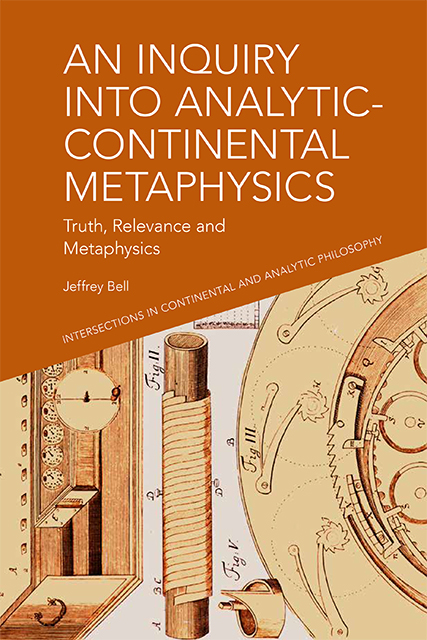Book contents
- Frontmatter
- List of Contents
- Acknowledgements
- Introduction
- §1 Problem of the New
- §2 Problem of Relations
- §3 Problem of Emergence
- §4 Problem of One and Many
- §5 Plato and the Third Man Argument
- §6 Bradley and the Problem of Relations
- §7 Moore, Russell and the Birth of Analytic Philosophy
- §8 Russell and Deleuze on Leibniz
- §9 On Problematic Fields
- §10 Kant and Problematic Ideas
- §11 Armstrong and Lewis on the Problem of One and Many
- 12 Determinables and Determinates
- 13 The Limits of Representational Thought
- 14 Learning from a Cup of Coffee
- 15 Carnap and the Fate of Metaphysics
- 16 Truth and Relevance
- Conclusion
- Bibliography
- Index
14 - Learning from a Cup of Coffee
Published online by Cambridge University Press: 25 October 2023
- Frontmatter
- List of Contents
- Acknowledgements
- Introduction
- §1 Problem of the New
- §2 Problem of Relations
- §3 Problem of Emergence
- §4 Problem of One and Many
- §5 Plato and the Third Man Argument
- §6 Bradley and the Problem of Relations
- §7 Moore, Russell and the Birth of Analytic Philosophy
- §8 Russell and Deleuze on Leibniz
- §9 On Problematic Fields
- §10 Kant and Problematic Ideas
- §11 Armstrong and Lewis on the Problem of One and Many
- 12 Determinables and Determinates
- 13 The Limits of Representational Thought
- 14 Learning from a Cup of Coffee
- 15 Carnap and the Fate of Metaphysics
- 16 Truth and Relevance
- Conclusion
- Bibliography
- Index
Summary
1. Mark Wilson, Temperature and Theory Façades
Let us return to Mark Wilson's work, with a perfectly brewed cup of coffee in hand. The coffee was brewed, let us say, at an ideal extraction temperature of 195°F (91°C). Leaving aside for the moment the qualitative judgment tied to the claim that the 195°F temperature is an ‘ideal extraction temperature’ (a judgment we will come back to shortly when we return to the conditions for actual, real experience), and sticking simply for now with the statement that this coffee was brewed with water at a temperature of 195°F, we have already seen that for Wilson such claims disguise an array of complexities. To summarise our earlier discussion, to identify a given property – such as the property of bearing heat or temperature, a property which we then name or categorise in accordance with a particular predicate, such as ‘… is 195°F’ – presupposes a series of relationships that are only identifiable within certain ranges and limits. The understanding of temperature as the mean kinetic energy of a gas, for instance, is relevant only with respect to noble gases at equilibrium, but not for gases in dynamic, far from equilibrium states, or for most other substances; the point at which water boils is relevant to water at sea level, and to water that has not been supersaturated with oxygen or deoxygenated (again, see Chang's 2004, 17–23, discussion); and the mercury thermometer itself only registers accurate readings within a certain range of temperatures and conditions, which is again true for the other measuring devices as well. The provisional conclusion we reached was that given the limits and range of relevant applicability, coupled to a convergence of different measuring devices upon similar readings, we can then with a fair degree of confidence accept the accuracy of the descriptive claims about, or the application of predicates to, a given property.
Where things become more complicated still, for Wilson, is when the accurate description of a phenomenon requires multiple descriptive frames, or facades as he calls them, each of which entails a range over which it provides accurate descriptions but beyond which it does not. The mistake Wilson cautions us against is to assume that the different descriptive frames or facades provide, in combination, a complete and unified account of the phenomena under study.
- Type
- Chapter
- Information
- An Inquiry into Analytic-Continental MetaphysicsTruth, Relevance and Metaphysics, pp. 146 - 159Publisher: Edinburgh University PressPrint publication year: 2022



